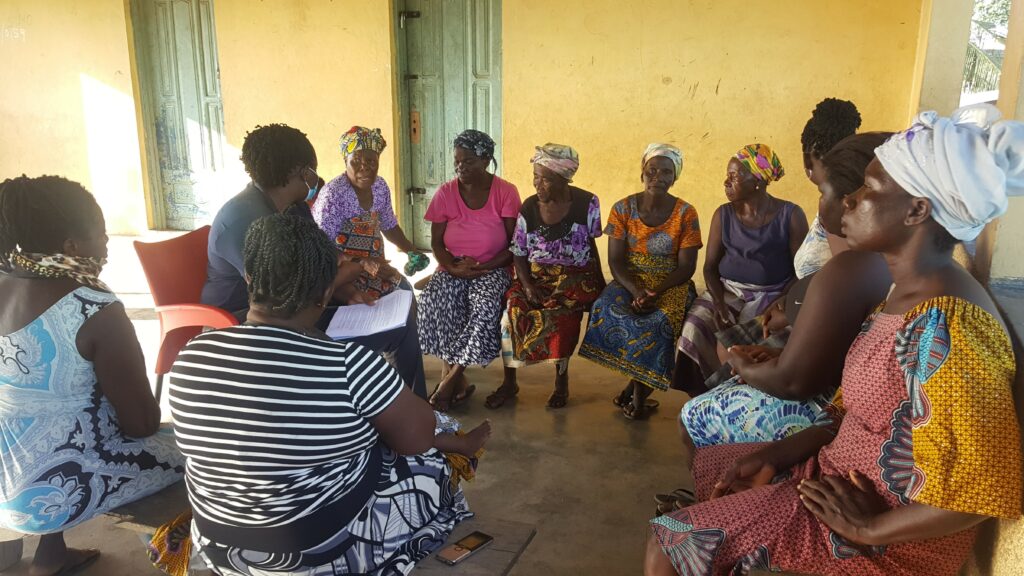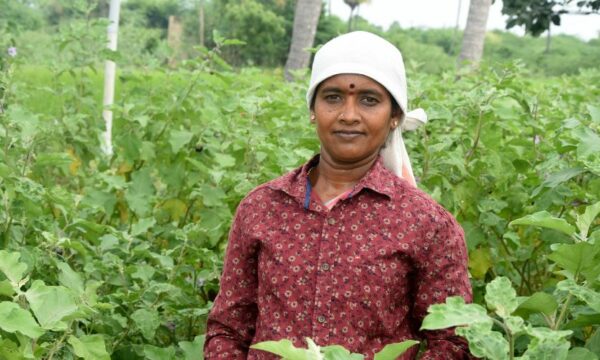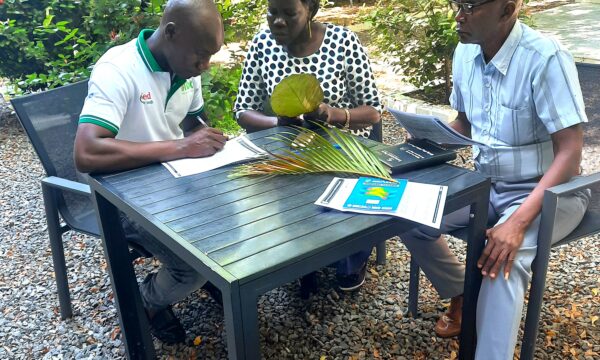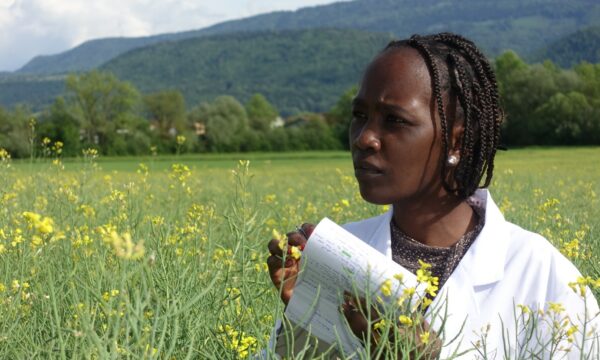
In Ghana, as in many other developing countries, women face challenges in accessing extension advisory services. Most services are geared to the needs of male farmers. On top of other challenges faced by women farmers, this lack of access only extends the gender gap in agricultural productivity in the global South.
Farms managed by women are 20-30% less productive than those managed by men. The FAO suggest that closing this gap could increase agricultural output by 2.5-4%, reducing the number of undernourished people by up to 17%.
GRAST
In order to improve the provision of gender-sensitive agricultural services, PlantwisePlus will conduct an assessment. This will look across programme countries using the Gender and Rural Advisory Services Assessment Tool (GRAST.)
Developed by FAO, the tool was used to look at three areas: the national enabling environment, the organizational level, and individual level.
In collaboration with the Women in Agriculture Development Directorate (WIAD) and the Deputy Director of the Agricultural Extension Services Directorate within the Ministry of Food and Agriculture (MoFA) in Ghana, the team collected data across those three levels and the GRAST indicators were used to measure how gender-sensitive the delivery of extension services is in the country.
The team selected three districts in three regions with distinct socio-cultural characteristics. There were two rural villages per district. One located closer to urban centres and the other remotely located from urban centres.
Favourable national enabling environment
Ghana’s Gender and Agriculture Development Strategy II (GADS II), the MoFA medium-term strategy and the draft extension strategy all identify women as potential clients of extension services. GADS II and the National Development Planning Commission’s Medium-term Strategy also commit to ensuring that at least 40% of beneficiaries of extension services are women (although this is modified to 30% by MoFA). Furthermore, there is a policy-level commitment to including gender equality goals as part of the performance evaluation of extension staff.
A key part of the national enabling environment is the role of WIAD. They focus specifically on coordinating the mainstreaming of gender in the agriculture ministry. Plus, developing and implementing programmes that improve the livelihoods of women farmers.
More women extension agents needed

At an organizational level, the team found that only 16.7% of extension agents were women. This in turn has a real impact on how many women farmers are reached. Women farmers in some communites prefer women extension agents.
Although the national policy set a target of ensuring that at least 40% of those accessing extension services are women, within the study communities, the figure was 15-30%.
A reason for the low number of women extension agents are the several challenges they face, which contribute to high attrition. For example, public and affordable childcare facilities, suitable transportation to rural communities, and security concerns while working in remote areas. And this gender imbalance is felt throughout the agriculture sector, not just for extension agents.
In addition, many extension agents rely on Extension Contact Farmers to reach farming communities. Very few of these are women and the men are more likely to only reach out to other men. There is even a belief from some extension agents that women lack organizational skills. Or, they do not command the respect to become Extension Contact Farmers.
Women’s priorities are often left out
A major barrier for women farmers is social norms and attitudes from within both farming communities and among extension staff. For example, the assessment found that in the Bono and Central regions, women farmers themselves assumed that extension services were meant only for men. Therefore, they wouldn’t participate if their husbands were available. As well as this, some extension agents reported that they did not feel the need to target women in the household. Only the male head should be targeted.
Time and mobility constraints proved to be another key barrier for women. Unpaid care work and lack of access to transport is detrimental to women’s participation in extension meetings. With Extension Contact Farmers or other (usually male) village leaders organising the extension activities, women are rarely consulted on when/where would be convenient. This means their concerns end up being deprioritized.
Women organized in farmers’ groups feel empowered to raise their needs and seek extension advice. However, joining such a group alone is not enough. When farmers’ group membership is male-dominated and there is a huge gender imbalance, women don’t speak out or actively engage.
However, one barrier that has been successfully overcome in the study is education and literacy levels. Women farmers in particular had low levels but adapted extension delivery using oral and visual presentations. Field demonstrations also helped to improve the participation of women farmers. That said, digital literacy is also very low in women farmers. They are far less likely than men to use ICTs to receive agricultural information.
Access to finance
One of the most important barriers to accessing gender-sensitive extension services for women is their lack of credit and financial resource. Without the money to pay for agricultural inputs like fertilizers, improved seeds, or tractor rental, women farmers felt discouraged to take part in extension activities.
In addition, by focusing only on the crops that women traditionally produce, extension services are actually reinforcing traditional gender roles. While women farmers do find this information relevant and useful, it inhibits them from diversifying into cash crops and therefore earning more for their produce.

Looking ahead
By undertaking this work, PlantwisePlus can look at the extension advisory system more holistically. The programme can offer recommendations to inform the design and delivery of the work. In a way that benefits both women and men.
In terms of Ghana, some of the recommendations included recruiting more women lead farmers as Extension Contact Farmers, supporting women farmers by covering transportation costs and offering on-site childcare facilities, encourage women’s groups to diversify and engage in the production of new crops.
Plus ensure that men and village leaders understand how all of this can benefit the entire household and community, not just women themselves.
Read the full project report: Gender and Rural Advisory Services Assessment in Ghana by Bethel Terefe, Birgitta Oppong-Mensah, Paul Siemah, Lovelace Kpodoviah, Paulina Addy, and Tamsin Davis.
Further reading
Gender-sensitive rural advisory services in Ghana come under the spotlight in training workshop
PlantwisePlus: female farmers and rural extension advisory services
Innovation on the ground can be critical for gender integration
All images courtesy of Bethel Terefe (CABI)
Related News & Blogs
CABI-led PlantwisePlus training to help increase livelihoods and greater food security in Papua New Guinea
Two international experts in crop and plant health from CABI have visited Papua New Guinea (PNG) to provide training in crop pests and disease which may help increase livelihoods and greater food security in the country. Agriculture is vital to PNG. It…
22 April 2024




